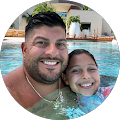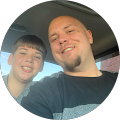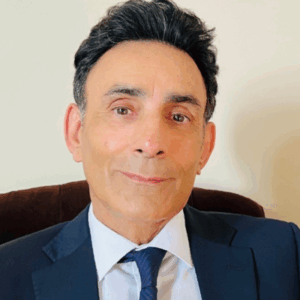

Living with a substance use disorder and a mental health disorder at the same time can feel like fighting two storms that feed each other. Louisville Addiction Center’s evidence-based dual diagnosis rehab blends psychiatric care with addiction services, giving you one integrated lifeline—exactly when you need it most.
A dual diagnosis—sometimes called a co-occurring disorder—means a person meets clinical criteria for both a substance use disorder and a mental health disorder.
Alcohol, opioids, or stimulants may mask anxiety, depression, or PTSD for a few hours, yet neurochemistry rebounds once the drug wears off, often amplifying panic, hopelessness, or trauma flashbacks. That spike in distress drives even more substance use, deepening tolerance and withdrawal cycles while mental health symptoms multiply.
Conversely, chronic drug exposure alters brain pathways that regulate mood and impulse control, making existing psychiatric conditions harder to treat with standard medication or therapy alone. Because the two illnesses constantly aggravate each other, treating them in isolation rarely works; relapse or symptom flare-ups in one realm quickly destabilize the other.
Integrated dual diagnosis treatment pairs medically supervised detox or tapering with evidence-based psychotherapy, psychiatric medication management, and skill-building groups—addressing both conditions together so progress in one area reinforces gains in the other, and true recovery can take root.
Traditional “siloed” care—treating addiction in one clinic and mental health in another—often produces revolving-door relapse rates. A person discharged from detox may still battle untreated depression; within days, hopelessness reignites cravings and drug use, sending them back to square one.
Conversely, prescribing an antidepressant without addressing alcohol misuse leaves mood medications struggling against constant neurochemical disruption.
Integrated dual diagnosis drug treatment eliminates that gap by placing psychiatrists, addiction specialists, and therapists on the same team, designing a single plan that targets both conditions together.
Two main models exist.
Sequential treatment tackles one disorder first, then the other; it risks losing clients during the hand-off and allows the untreated illness to sabotage progress.
Simultaneous treatment, Louisville Addiction Center’s model, delivers psychiatric medication management, cognitive-behavioral therapy, and substance use interventions in parallel, so gains in one arena reinforce the other.
The difference shows up in national data: the 2022 SAMHSA National Survey on Drug Use and Health reported that only about 9 percent of adults with a co-occurring disorder received integrated care, yet those who did were significantly more likely to remain abstinent six months after discharge and report improved mental health scores.
Integrated treatment isn’t just convenient; it is statistically more effective, offering the best documented path to lasting stability for people facing both illnesses at once.
Opioid addiction in Kentucky rarely shows up alone—untreated mood disorders are often right beside it.
State figures from 2023 reveal that a little over 40 percent of people who began treatment for opioid use also screened positive for clinical depression or generalized anxiety, highlighting just how intertwined these struggles can be.
Rural counties report even higher overlap, where limited psychiatry access pushes residents toward self-medicating with prescription painkillers or illicit fentanyl.
At the same time, the Kentucky Injury Prevention & Research Center notes that emergency-department visits for opioid overdoses rose 14 percent between 2021 and 2023, with a substantial subset coded for concurrent mental health crises.
These numbers highlight a widening care gap—and the urgent need for dual diagnosis treatment programs in Kentucky that can address both chemical dependency and psychiatric distress under one roof. Louisville Addiction Center’s integrated model was built to close that gap, offering coordinated medication management, therapy, and recovery coaching in a single, accessible location.
Identifying the intersection of mental illness and substance misuse early can prevent months—or years—of cycling between short-term fixes and relapse. Consider seeking dual diagnosis therapy if you or a loved one notices any of the following:
Substance use can blur—or even copy—the warning signs of mental illness, so a professional screening isn’t just helpful; it’s essential. A full dual diagnosis assessment reviews mental health history, current drug use, and medical status side by side, ensuring care tackles the whole story instead of piecemeal symptoms. The sooner that evaluation happens, the sooner relief begins and the better the odds of staying well for the long haul.
Erin, a 34-year-old accountant, began drinking wine nightly to “take the edge off” persistent sadness and low energy. Alcohol’s temporary boost soon wore thin, deepening her depressive lows and disrupting sleep. By the time Erin sought help, she was consuming a bottle and a half each evening, her serotonin levels further depleted by constant alcohol use.
Marcus, a veteran, returned from deployment with flashbacks and hypervigilance. Prescribed hydrocodone after a training injury, he discovered the medication also dulled intrusive memories. As tolerance rose, Marcus transitioned to illicit fentanyl pills to keep nightmares at bay, intertwining trauma triggers with a dangerous opioid dependence.
Lena, a university student with social anxiety disorder, received alprazolam for acute panic attacks. Within weeks, she noticed rebound jitters between doses and began taking extra tablets before classes. Her short-acting benzodiazepine relieved symptoms in the moment but rewired her GABA receptors, leaving her baseline anxiety worse and sparking a cycle of escalating use.
These pairings illustrate how a drug’s immediate relief can reinforce, and ultimately magnify, the very mental health symptoms a person hopes to escape. Effective care must therefore address both the biochemical hooks of the substance and the psychological roots of the disorder simultaneously.
Louisville Addiction Center’s dual diagnosis treatment program follows a deliberately sequenced pathway:
Throughout every stage, the same multidisciplinary team tracks progress, adjusts medications, and updates therapy goals—ensuring no gaps between mental health and addiction care.
Every admission begins with a 360-degree evaluation that blends medical, psychological, and social insight. Licensed clinicians review health records, substance use history, and mental health symptoms while standardized screening tools gauge depression, anxiety, trauma, and suicide risk.
Laboratory panels check liver enzymes, electrolyte balance, and medication levels, and a brief cognitive screen captures memory or attention concerns.
The resulting bio-psycho-social profile drives an individualized care plan, matching each client’s readiness, safety needs, and recovery goals right from day one.
When withdrawal risks exceed outpatient safety, Louisville Addiction Center coordinates admission to trusted external detox partners for round-the-clock monitoring.
Physicians design a gradual benzodiazepine or opioid taper, often starting non-addictive comfort medications and, when clinically appropriate, initiating Medication-Assisted Treatment (MAT) with buprenorphine or naltrexone.
Daily case-management calls keep our team informed, ensuring a seamless handoff back into partial hospitalization or intensive outpatient programming the moment medical stabilization is achieved.
Treatment intensity flexes as stability grows. The journey begins in the Partial Hospitalization Program (PHP), where clients attend day-long therapy blocks—psychiatric check-ins, CBT/DBT groups, trauma processing, and mindfulness practice—five days a week.
Once cravings lessen and mood steadies, participants step down to the Intensive Outpatient Program (IOP) for three or four evening or weekend sessions that fit work and family schedules.
Finally, the Outpatient Program (OP) provides one to three focused visits per week for relapse prevention coaching, medication adjustments, and alumni networking.
Throughout all three levels, the same psychiatrist, therapist, and case manager follow each client, ensuring continuity, trust, and a unified strategy from first detox referral to sustained community living.
Louisville Addiction Center anchors its evidence-based dual diagnosis therapy and treatment in Kentucky on four integrated pillars: medically supervised detox or taper, psychiatric medication management, evidence-based talk therapies, and wellness practices that strengthen mind–body resilience.
Clients move through personalized combinations of Cognitive-Behavioral and Dialectical Behavior Therapies, trauma-focused modalities like EMDR and brainspotting, and Medication-Assisted Treatment (MAT) when appropriate.
Family counseling, peer-led support groups, and life-skills coaching round out the program, ensuring every dimension of a substance use disorder and a mental health disorder is addressed in the same coordinated plan.
As the backbone of our dual diagnosis Therapy track, Cognitive-Behavioral Therapy teaches clients to spot distorted thoughts—“I can’t cope without pills,” “Everyone is judging me”—and replace them with balanced, reality-based alternatives.
Dialectical Behavior Therapy adds emotion-regulation, distress-tolerance, and interpersonal-effectiveness modules, ideal for clients whose mood swings or impulsivity have sabotaged past recovery efforts.
Together, CBT and DBT provide a skill set for managing cravings, setting boundaries, and riding out anxiety spikes without self-medicating. Weekly individual sessions dive deep into personal triggers, while group settings offer role-plays and mindfulness drills that convert theory into daily practice.
For many clients, unresolved trauma fuels both substance use and psychiatric symptoms. Eye Movement Desensitization and Reprocessing (EMDR) uses bilateral stimulation to help the brain reprocess painful memories, reducing flashbacks and emotional reactivity.
Brainspotting locates and releases somatic “hot spots” where traumatic energy is stored, often providing rapid relief from body-based tension and hypervigilance.
By neutralizing root trauma, these modalities lower the urge to numb with drugs or alcohol and make mood-stabilizing medications work more effectively.
Psychiatrists team up with addiction doctors to fine-tune every prescription. Antidepressants or mood stabilizers can steady depression, bipolar swings, and anxiety, while naltrexone takes the edge off alcohol cravings and buprenorphine softens opioid withdrawal. Routine check-ins—vitals, side-effect checklists, lab work—make sure each medication stays safe and effective.
Medication is only half the plan, though. Counseling runs alongside every dose, because while pills can quiet symptoms, it’s the coping skills learned in therapy that keep recovery moving forward.
Lasting change requires more than clinic visits; it thrives on daily self-care. Optional yoga classes teach breathing patterns that downshift the nervous system, guided meditation sessions cultivate present-moment awareness, and nutrition workshops rebuild energy with balanced meals that stabilize blood sugar and mood.
Sleep-hygiene seminars tackle insomnia common to both detox and depression, while light cardio or stretching groups restore physical confidence.
These holistic tools serve as real-world relapse-prevention strategies clients can practice long after formal treatment ends.
Healing rarely happens in isolation, which is why Louisville Addiction Center weaves structured family and peer involvement into every stage of our dual diagnosis rehab program. Each week, loved ones join a family therapy session that unpacks the ways substance use and psychiatric symptoms strain communication.
Clinicians teach boundary-setting skills—how to differentiate healthy support from enabling—so relatives can encourage progress without feeding old patterns. Educational handouts explain neurobiology, relapse warning signs, and practical coping tools families can practice together at home.
Peer connection reinforces that guidance. Small, diagnosis-specific process groups allow participants to share victories and challenges with others managing both depression and anxiety and active recovery.
Alumni who have completed dual diagnosis treatment return monthly to host Q&A panels, offering real-world perspective on returning to work, navigating medication management, and sustaining healthy relationships.
When you mix expert counseling with clued-in family and peers who’ve walked the same road, you build a safety net that can spot slips early and keep celebrating victories long after treatment wraps up.
Recovery continues well beyond a graduation certificate, so each client leaves Louisville Addiction Center with a personalized relapse-prevention roadmap. Your primary therapist drafts an exit plan that lists specific high-risk scenarios, coping skills, and emergency contacts.
Step-down referrals keep clinical momentum alive—some clients shift to weekly OP sessions on campus, while others link to trusted local psychiatrists or telehealth counselors nearer to home. For added flexibility, virtual check-ins via encrypted video let you schedule brief booster calls with your therapist or case manager, review medication effects, and troubleshoot stressors before they snowball.
Alumni support groups meet twice a month—online and in person—so you can trade sober milestones and grounding techniques with peers who understand dual diagnosis challenges. Together, these layers of accountability turn short-term gains into durable, day-to-day resilience.
Long-term stability means more than staying sober and managing mental health symptoms; it also requires purpose, structure, and financial security. Louisville Addiction Center, therefore, pairs clinical care with vocational and educational support that helps clients rebuild or launch meaningful careers.
Certified recovery coaches first assess work history, transferable skills, and academic interests. Next, they collaborate with local workforce-development agencies to arrange résumé workshops, mock interviews, and job-placement fairs tailored to people re-entering employment after treatment gaps.
For clients aiming to finish high-school equivalency or start college, counselors provide FAFSA guidance, disability-services referrals, and quiet study spaces on site.
Weekly groups cover budgeting, tax basics, and time-management strategies, ensuring that paychecks translate into stable housing and healthy routines rather than relapse triggers.
Research shows that gainful employment can cut post-treatment relapse risk by up to 50 percent, especially for individuals with a substance use disorder and a mental health disorder who benefit from a predictable daily structure.
By weaving vocational goals into the dual diagnosis treatment program, Louisville Addiction Center equips clients not only to survive but to thrive—turning clinical progress into lasting, self-directed success in the community.
Several features set Louisville Addiction Center apart among Kentucky’s dual diagnosis providers.
Licensed, multidisciplinary staff—board-certified psychiatrists, addictionologists, LCSWs, and trauma-informed therapists—coordinate every treatment plan.
Outcome tracking uses validated mood and craving scales at intake, midpoint, and discharge, allowing for measurable progress and helping clinicians fine-tune interventions.
Deep community ties with local hospitals, sober-living homes, and vocational programs streamline referrals for medical or social services that support recovery stability.
Finally, same-day assessments and insurance verification mean you can transition from inquiry to active treatment without the typical waitlist bottleneck.
When facing both a substance use disorder and a mental health disorder, speed, expertise, and continuity matter; Louisville Addiction Center delivers all three under one integrated roof.
Hear directly from those who have walked the path to recovery. Our patients’ stories highlight the compassionate care, effective programs, and life-changing support they’ve experienced. Let their journeys inspire you as you take your first steps toward healing.
For those looking for safe and effective dual diagnosis treatment centers in Kentucky, Louisville Addiction Center is here to help. We understand the complex nature of co-occurring addiction and mental health disorders. Our professional and compassionate staff are dedicated to supporting you every step of the way on your road to recovery.
Our specialized programs are designed with our clients in mind. Thereby, ensuring that their individualized needs and goals are properly addressed and supported throughout the process of treatment. Our dual diagnosis rehab & treatment center can help you achieve the lasting wellness that you deserve.
Contact us today for more information about our specialized dual diagnosis treatment in Louisville, KY.
Get Family Support Now
We understand addiction affects the whole family. Our comprehensive family program helps rebuild trust and restore relationships.
Weekly Family Therapy Sessions
Educational Workshops
Support Groups
Communication Skills Training
![]()
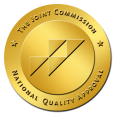
Substance Abuse and Mental Health Services Administration. (2009). Integrated treatment for co‑occurring disorders: Building your program (D.H.H.S. Pub. No. SMA‑08‑4366). Center for Mental Health Services, U.S. Department of Health and Human Services. northcarenetwork.org+13SAMHSA Library+13institutebestpractices.org+13
Substance Abuse and Mental Health Services Administration. (2010). Co‑occurring disorders: Integrated dual disorders treatment implementation resource kit. Author. PsychU+3institutebestpractices.org+3CT.gov+3
Substance Abuse and Mental Health Services Administration. (n.d.). Treatment Improvement Protocol (TIP) series—TIP 42: Substance use disorder treatment for persons with co‑occurring disorders. Author. SAMHSA Library+8PsychU+8SAMHSA Library+8
Substance Abuse and Mental Health Services Administration. (n.d.). Integrated treatment for co‑occurring disorders: The evidence. Center for Mental Health Services. SAMHSA Library+1
Substance Abuse and Mental Health Services Administration. (n.d.). Managing life with co‑occurring disorders. SAMHSA. CT.gov+12SAMHSA+12SAMHSA Library+12
Drake, R. E., Mercer‑McFadden, C., Mueser, K. T., McHugo, G. J., & Bond, G. R. (1998). Review of integrated mental health and substance abuse treatment for patients with dual disorders. Schizophrenia Bulletin, 24(4), 589–608. https://doi.org/10.1093/oxfordjournals.schbul.a033351 Transformation House+1
Recovery.org. (2024, October 29–January 29, 2025). Dual diagnosis treatment: Comprehensive care for mental health & addiction. Recovered. https://recovered.org/treatment/treatment-types/dual-diagnosis-treatment Recovered
Verywell Mind. (2022, August 25). What is a dual diagnosis? Verywell Mind. https://www.verywellmind.com/dual-diagnosis-causes-diagnosis-treatment-6499948 Verywell Mind

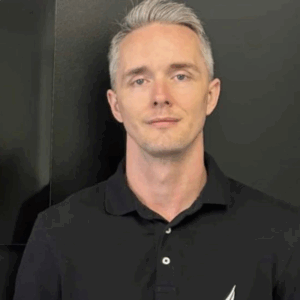

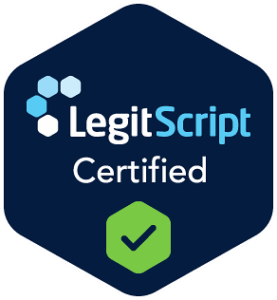
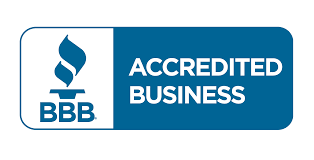


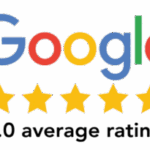

Substance Abuse and Mental Health Services Administration. (2009). Integrated treatment for co‑occurring disorders: Building your program (D.H.H.S. Pub. No. SMA‑08‑4366). Center for Mental Health Services, U.S. Department of Health and Human Services. northcarenetwork.org+13SAMHSA Library+13institutebestpractices.org+13
Substance Abuse and Mental Health Services Administration. (2010). Co‑occurring disorders: Integrated dual disorders treatment implementation resource kit. Author. PsychU+3institutebestpractices.org+3CT.gov+3
Substance Abuse and Mental Health Services Administration. (n.d.). Treatment Improvement Protocol (TIP) series—TIP 42: Substance use disorder treatment for persons with co‑occurring disorders. Author. SAMHSA Library+8PsychU+8SAMHSA Library+8
Substance Abuse and Mental Health Services Administration. (n.d.). Integrated treatment for co‑occurring disorders: The evidence. Center for Mental Health Services. SAMHSA Library+1
Substance Abuse and Mental Health Services Administration. (n.d.). Managing life with co‑occurring disorders. SAMHSA. CT.gov+12SAMHSA+12SAMHSA Library+12
Drake, R. E., Mercer‑McFadden, C., Mueser, K. T., McHugo, G. J., & Bond, G. R. (1998). Review of integrated mental health and substance abuse treatment for patients with dual disorders. Schizophrenia Bulletin, 24(4), 589–608. https://doi.org/10.1093/oxfordjournals.schbul.a033351 Transformation House+1
Recovery.org. (2024, October 29–January 29, 2025). Dual diagnosis treatment: Comprehensive care for mental health & addiction. Recovered. https://recovered.org/treatment/treatment-types/dual-diagnosis-treatment Recovered
Verywell Mind. (2022, August 25). What is a dual diagnosis? Verywell Mind. https://www.verywellmind.com/dual-diagnosis-causes-diagnosis-treatment-6499948 Verywell Mind









Hear directly from those who have walked the path to recovery. Our patients’ stories highlight the compassionate care, effective programs, and life-changing support they’ve experienced. Let their journeys inspire you as you take your first steps toward healing.
Louisville Addiction Center is helping people in Kentucky overcome addiction and mental health challenges.






